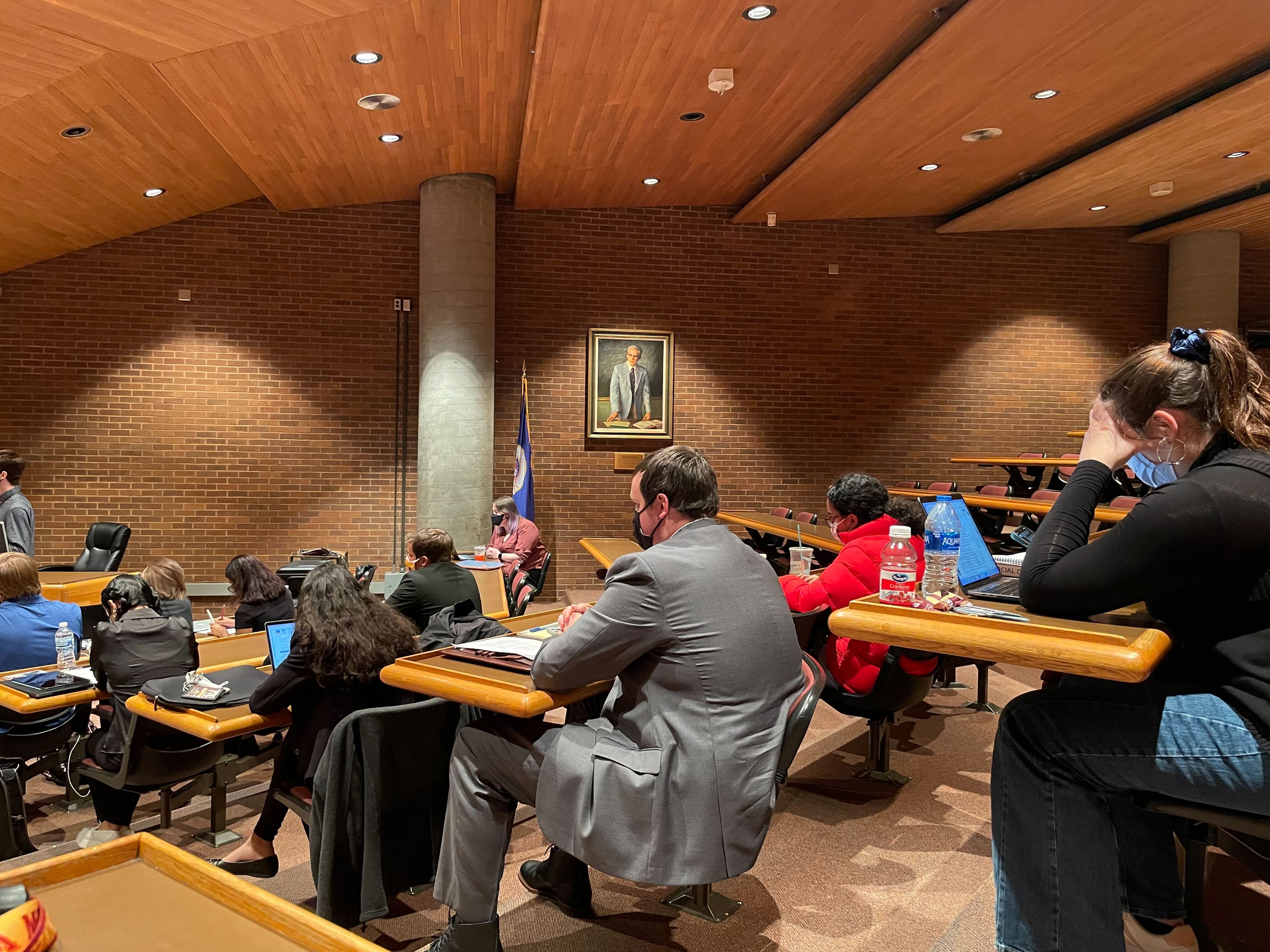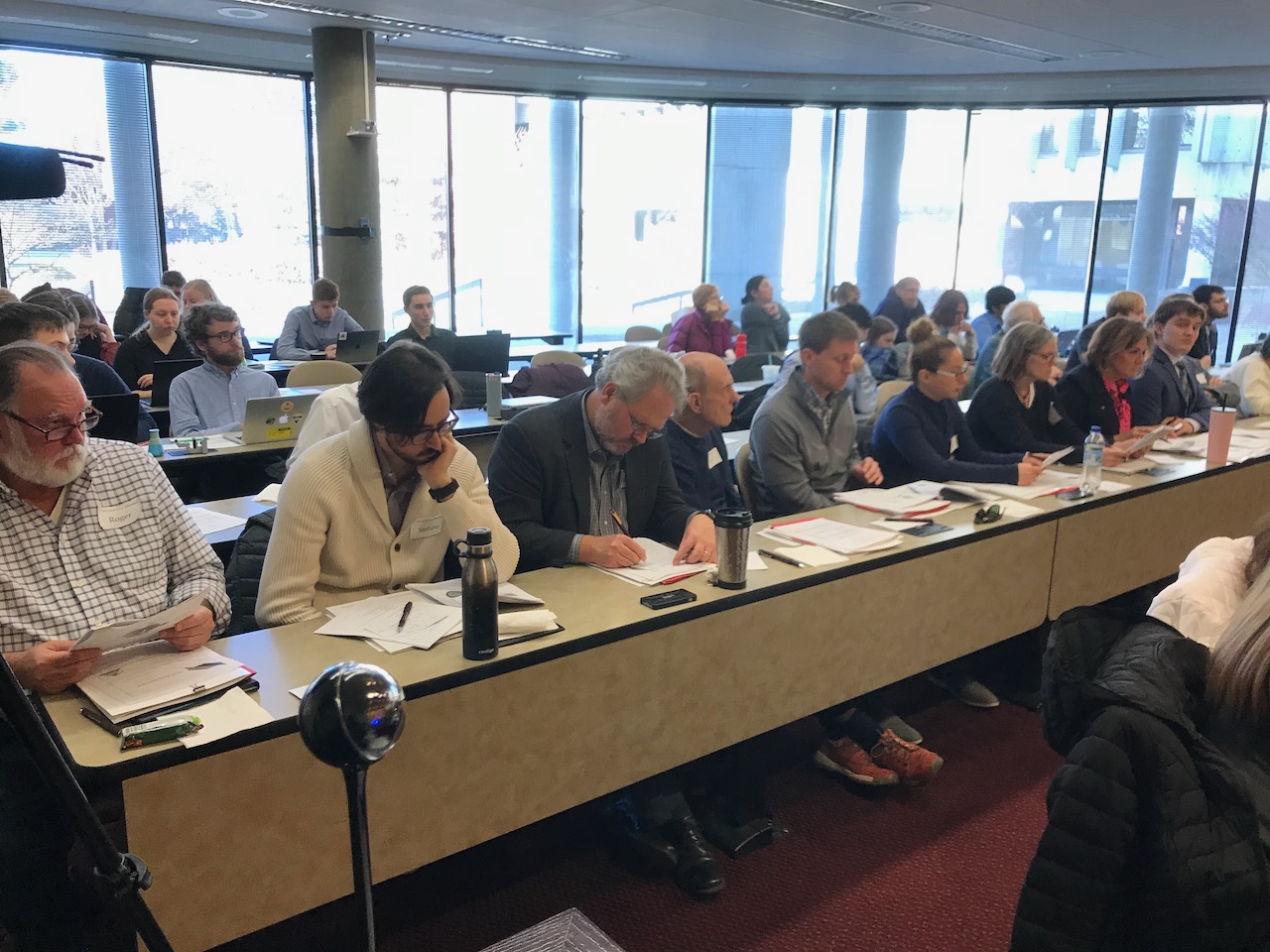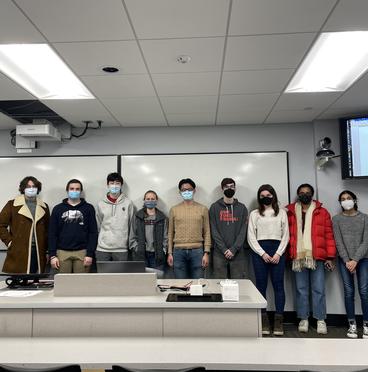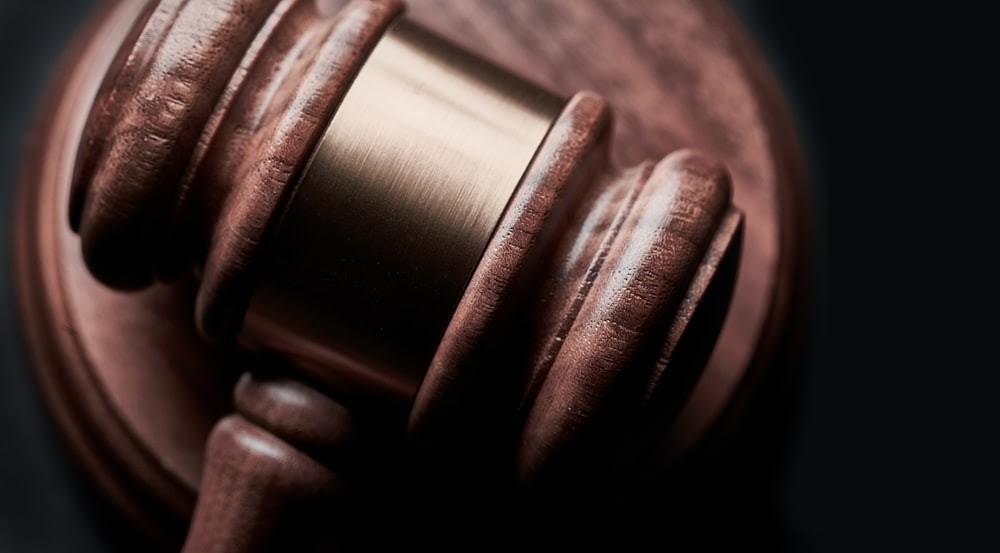It All Came Down to This: Recap the Trial and Verdict
After fourteen weeks of preparation, Science Court finally held our trial on Saturday. Despite convincing arguments by both the refine and reform legal teams, supported by an abundance of information gathered by the science team, the jury ultimately decided in favor of the refine team, while also proposing their own combination of solutions. Here’s a summary of the trial that got them to this conclusion.

The Reform and Refine Legal Teams had Differing Opinions on an Ideal Grading System
Three Interesting Things we Found but You Won’t Hear at Trial
Members of our Science Team spent the entire semester finding information that will ultimately help either (or both) the refine and reform legal teams construct their arguments at trial tomorrow. However, such an extensive exploration from numerous sources inevitably led to almost all members of the Science Team finding information that while extremely interesting, did not fit into their presentations. Here are some of these interesting facts that you won’t hear at the trial tomorrow.
There is Conflicting Evidence About the Roles of Grades in Students’ Lives After School
Changing University Policy with our Work: Writing to the Student Senate
The University of Minnesota has a robust senate system involved in policy decisions that affect everyone at the University, and there are several individuals and committees that process requests.
Ultimately, all policies are decided by the Board of Regents, but many groups can bring issues to its attention, depending on the nature of the issue. For example, both the Faculty Consultative Committee and the Student Consultative Committee can bring attention to policies involving Student Academic Integrity. However, issues regarding Professional Development and Recognition can only be brought up by the Professionals and Administrators Consultative Committee.
Educational Policy is the category that can be brought up by the greatest number of committees because of the immense number of stakeholders. Therefore, Science Court has multiple ways students could present our research to potentially implement a policy change.
The class will likely present changes to the grading policy and supporting research to the Student Senate – as opposed to other senate sub organizations– because it was previously involved with grading policies.
Curious About How the Trial Runs?
The 2022 Science Court trial on whether the current grading system at the U should be refined or reformed will take place on Saturday, April 23. If you’re new to the Science Court system, you may be wondering what does the trial involve? Is it like a normal jury trial? How long does it last? Here’s what jurors – and any general public who chooses to attend – can expect from a Science Court trial.
We’ll start at 9AM with a brief background on the principles behind Science Court and the introduction to the case from Professor Ellad Tadmor. We’ll then hold a series of sessions, where the science team will present information about specific topics pertaining to the case, before being questioned by the legal team. The two legal teams will hold a rebuttal session before we open up for jury questions. Finally, we’ll hold closing arguments, the jury will deliberate and announce the verdict the next day.

The 2019 Jury
What We Learned from Four Grading Experts Who Visited SciCourt
We heard the opinions of several expert witnesses this week. First, Prof. Nathan Kuncel (Psychology) discussed research that reviews the purposes of higher education. Prof. Sue Wick (Biological Sciences) then discussed some of the limitations to the University of Minnesota’s current grading system from a mental health standpoint. Vice Provost and Dean of Undergraduate Education Robert McMaster outlined some of the rationale for the current grading system and potential barriers to implementing a change. Lastly, Prof. Michael Rodriguez (Educational Psychology) shared a perspective on possible systematic issues with the current grading system.
To Prof. Nathan Kuncel, We Must First Discuss the Purposes of Education
Professor Kuncel outlined the different perspectives on why students work towards undergraduate degrees:
Meet Our Science, Legal, and Media Teams
To best utilize our diverse skill sets, we have divided the Science Court Class into three teams: science, legal, and media. The science team will be mainly responsible for conducting research on important domains that pertain to our topic. The legal team will use this information and be further divided into two subteams to formulate opposing arguments about grades.The media team will keep you updated on all of these processes along the way.

Depolarizing America: Episode 6
In this final episode of Depolarizing America, hosted by Matt Simonson, we recap this semester's SciCourt trial, talk to jurors before they deliberate, and announce the verdict! Our Media Team, Matt Simonson, Jess Jurcek, and Hannah Ihekoronye, also reflect on the semester, their initial expectations, and the work they've done this year.
Follow us on social media -- Instagram, Twitter, and Facebook @scicourt -- to be alerted next spring when SciCourt gavels back into session.
The verdict is in!

Photo by Bill Oxford on Unsplash
After months of preparation and debate, the verdict is finally in. By majority rule, the final verdict is to combat polarization in American society, a national mandatory service should be adopted.
A total of three juries deliberated on Sunday, each of which decided its own verdict. One jury voted in favor of a voluntary service with a 5-3 vote, while the other two juries voted in favor of the mandatory service program with a 6-1 and 6-0 vote.
Andrew Bremner, a member of the victorious pro legal team began the trial by saying, “service is more than something we do, it is something that defines who we are.” The pro team argued that their mandatory national service opportunities will promote a strong American identity among the citizens who participate.
Depolarizing America: Episode 5
In this fifth episode of Depolarizing America, hosted by Matt Simonson, we will be talking with the legal pro and con teams about their confidence for the trial and what they have done to prepare.
The University of Minnesota Science Court students are researching and debating whether mandatory service programs could work to create more political and racial harmony in the United States. This semester’s Science Court trial is on April 24, starting at 9 a.m. If you’re interested in attending virtually, register for the webinar here.
Follow us on social media -- Instagram, Twitter and Facebook at @scicourt.
SciCourt Finalizes Trial Plans

Photo by Felipe Furtado on Unsplash
In the remaining days before Saturday’s trial, Science Court science team members presented on their domains and legal team members practiced their opening and closing statements. During the trial, jurors will have the chance to ask questions to members of the science and legal teams in a process overseen by Science Court legal advisor and judge Bill McGinnis.